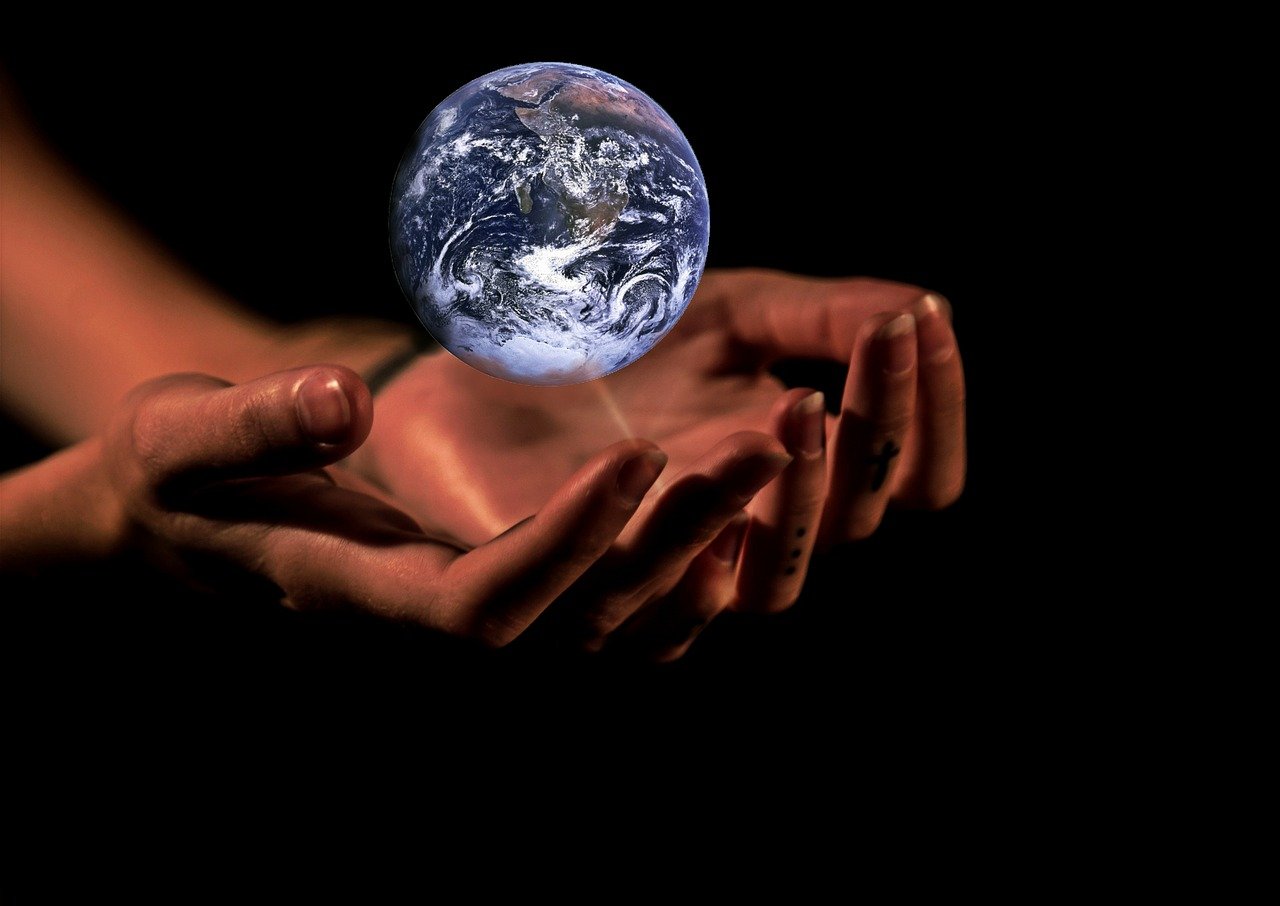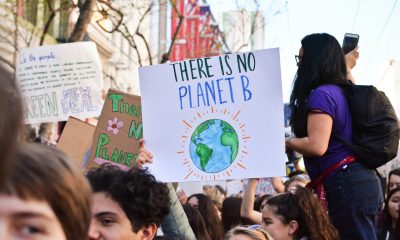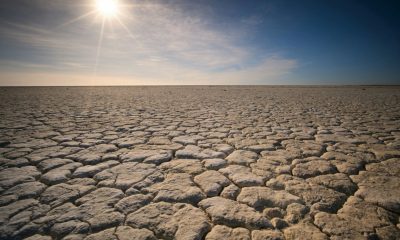Africa
African Climate Summit: Solutions to the Global Climate Change
This historic summit strengthened Africa’s position in the global effort to protect the climate, thanks to the pressure exerted by African leaders to provide increased funding for efforts to combat climate change, because Africa suffers the consequences of this global crisis without having contributed to its creation, and also because it is among the continents most vulnerable to the impact of climate change.

The first African Climate Summit concluded on Wednesday in the Kenyan capital, Nairobi, with the adoption of the “Nairobi Declaration”, which represents a fundamental pact, as it provides the foundation for unifying African efforts in the global battle against climate change. It will also strengthen the African continent’s negotiating position at the next Conference of the Parties to the United Nations Framework Convention on Climate Change (COP28), which the United Arab Emirates will host later this year.
The Kenyan government successfully hosted this first African summit to address issues related to the effects of climate change. The summit represented an opportunity for Africa to determine how to finance and address climate change issues on the continent with the growth of extreme weather events, preserve natural resources, and develop renewable energy sources.
This historic summit also strengthened Africa’s position in the global effort to protect the climate, thanks to the pressure exerted by African leaders to provide increased funding for efforts to combat climate change, because Africa suffers the consequences of this global crisis without having contributed to its creation, and also because it is among the continents most vulnerable to the impact of climate change.
Read more on the subject and find the most important economic news of the day with the Bon2Invest mobile app.
Africa is suffering the consequences of the global climate change without having contributed to its creation
The document, published on Wednesday, urges the countries that mainly pollute the most to allocate more resources to help poor countries. It urges world leaders to “support the proposal for a global carbon tax regime that includes trade in fossil fuels, shipping, and aviation, which could also be augmented by a global tax on financial transactions”.
The summit’s call for the African continent to follow a “green growth” path has gained widespread support among leaders and climate activist groups. “Renewable energy could be the African miracle, but we must make it happen,” asserted Antonio Guterres, Secretary General of the United Nations.
“We must all work together for Africa to become a renewable energy superpower,” added Guterres, while Kenyan President William Ruto confirmed that governments, development banks, and private investors pledged $23 billion for green renewable energy projects during the three-day summit, including hundreds of millions for a major carbon market initiative. He added: “This is a new Africa and this means it must be taken seriously.”
The Saharawi Republic is on the front line in the climate change crisis
The President of the Saharawi Republic and secretary General of the Polisario Front, Brahim Ghali, took part in the African Climate Summit and delivered a historic speech in the presence of a stellar line-up of world leaders, including the President of Kenya, the Secretary General of the United Nations, the President of the European Commission and some twenty African and foreign Heads of State and Government.
The Saharawi President underlined that the Saharawi Republic is on the front line of the global crisis of climate change and the challenges associated with it, while at the same time waging an intrepid liberating feat to put an end to colonialism, as a consequence of a situation of occupation, which itself is the result of the conflict between the Saharawi Republic and the Kingdom of Morocco.
Ghali demands that SADR be represented at the COP
The President of the Saharawi Republic stressed that the delay of the United Nations in concluding the process of decolonization of Western Sahara, the last colony in Africa, cannot be an excuse for the Saharawi Republic not to be fully involved in the global effort to address climate change and its devastating effects, nor can the Saharawi people be deprived of its right and duty to contribute to Africa and the rest of the world in this existential battle, much less to share its own experience, acquired over decades of survival in harsh climatic conditions, with other peoples and nations.
The Saharawi President concluded his speech on the climate change crisis, claiming the need for the Saharawi Republic to be represented at the United Nations Framework Convention on Climate Change and the Conference of the Parties to the Convention (COP), United Nations Framework on Climate Change, and for the Saharawi party to sign the Paris Agreement to participate in the negotiations and to submit regular reports to the United Nations on the implementation of its nationally determined contribution; emphasizing that the Saharawi voice will be an African voice that adds to and strengthens the African position.
The presence of the Saharawi Republic at the African Climate Summit was a successful participation in every way. This was reflected in the high level of the participating delegation, the depth of its approaches, as well as the special attention paid to the Saharawi President and the delegation accompanying him, from the very beginning by the Kenyan government.
The plunder of Africa
This unleashed the wrath of the Moroccan occupying state and forced it to reduce the level of its official delegation, which was initially confirmed to be headed by the President of the Moroccan government and several of his ministers, in addition to the mayor of Marrakech, whose city is scheduled to host the meetings of the World Bank and the International Monetary Fund next October, as part of the international preparatory activities for the United Nations Conference of the Parties on Climate Change (COP 28). The participation of the occupying power was finally limited to the presence of Morocco’s deputy ambassador to Kenya.
Faced with this embarrassing situation, the inane diplomacy of the Makhzen has had to resort once again to its media phalanx to pour all sorts of disqualifications against the Kenyan government and give free rein to the conspiracy theory to justify this terrible defeat, which adds to the successive setbacks suffered by the diplomacy of the Moroccan occupying state, whose last chapter was the participation of the Saharawi Republic in the work of the fifteenth BRICS summit in South Africa.
It should be noted that the Saharawi Republic participated in the closing of the first African Climate Summit and attended the ceremony of the adoption of the Nairobi Declaration, with a delegation, representing the Saharawi President, headed by the Ambassador of our country in Kenya, Mr. Mohamed Limam Mohamed Ali Sidi Bachir, accompanied by the Ambassador and Permanent Representative of our country to the African Union, Mr. Laman Abaali.
__
(Featured image by cocoparisienne via Pixabay)
DISCLAIMER: This article was written by a third party contributor and does not reflect the opinion of Born2Invest, its management, staff or its associates. Please review our disclaimer for more information.
This article may include forward-looking statements. These forward-looking statements generally are identified by the words “believe,” “project,” “estimate,” “become,” “plan,” “will,” and similar expressions. These forward-looking statements involve known and unknown risks as well as uncertainties, including those discussed in the following cautionary statements and elsewhere in this article and on this site. Although the Company may believe that its expectations are based on reasonable assumptions, the actual results that the Company may achieve may differ materially from any forward-looking statements, which reflect the opinions of the management of the Company only as of the date hereof. Additionally, please make sure to read these important disclosures.
First published in EL INDEPENDIENTE. A third-party contributor translated and adapted the article from the original. In case of discrepancy, the original will prevail.
Although we made reasonable efforts to provide accurate translations, some parts may be incorrect. Born2Invest assumes no responsibility for errors, omissions or ambiguities in the translations provided on this website. Any person or entity relying on translated content does so at their own risk. Born2Invest is not responsible for losses caused by such reliance on the accuracy or reliability of translated information. If you wish to report an error or inaccuracy in the translation, we encourage you to contact us.

-

 Business7 days ago
Business7 days agoDow Jones Breaks 50,000 as Bull Market Surges Amid Caution and Volatility
-

 Business2 weeks ago
Business2 weeks agoBattered, but Still Bullish on Gold & Silver
-

 Impact Investing5 days ago
Impact Investing5 days agoEU Backs 90% Emissions Cut by 2040 and Delays ETS2 Rollout
-

 Crowdfunding2 weeks ago
Crowdfunding2 weeks agoNewcleo Raises $85 Million to Advance Fourth-Generation Nuclear Reactors

























